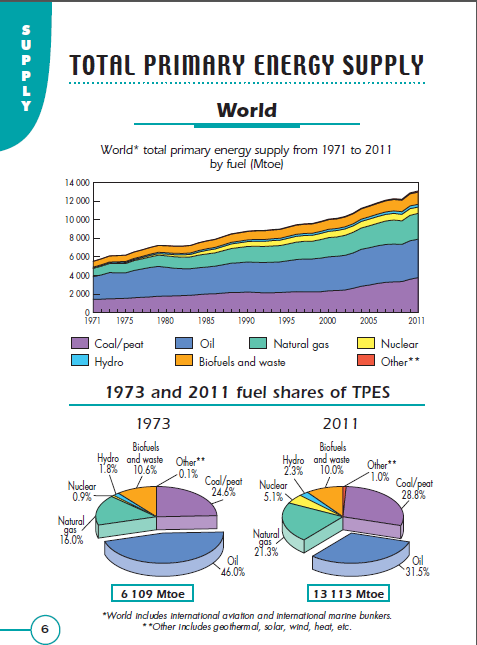Not Because They Are Easy, but Because They Are Hard
Drastically reducing our fossil fuels (FF) use without destroying the world economy and shoving most of us into a life of utter poverty is probably THE most difficult challenge humanity has ever faced.
Those that say this transition will be easy, are making a disservice to humanity. It WON'T be easy. Period.
Today, ~82% of our global total primary energy supply is delivered by fossil fuels. Consequently, the global infrastructure is built around them:
1. Motor vehicles.
2. Fueling stations.
3. Air travel.
4. Factories.
5. Power plants.
6. Pipelines.
8. Maritime transportation
9. Building space heating / water heaters
10. What have you...
Some people believe renewable energy (mainly sun and wind) will "catch fire" just like the Internet and mobile phones did some years ago, but this optimism is misplaced.
Both the Internet, as well as mobile phones gave us the opportunity to do things we could never have done before, on the other hand, a replacement of FF by RE would not provide value to the final consumer, if at all, RE would be more expensive and less flexible. Besides RE, since it is not constant, requires FF most of the time to prop them up when the sun is not shining or the wind is not blowing*.
The annual capacity factor for solar PV worldwide today is ~15%, which (simplifying) means that 85% of the time something else has to produce the electricity, and that "something" is usually a fossil fuel plant.
We have also been somewhat deceived by "Moore's Law" on how fast technological improvements can take place. Integrated circuits (ICs) today have more than one hundred million more transistors per unit area than those manufactured in the 1960's. However, ICs handle information, not loads of power, so we are talking about very different things. The advances in power production and efficiency move at a snail's pace. Say, if the energy efficiency conversion of high volume solar PV is today ~14% (in other words, the percentage of the sunlight striking the panel that is actually converted to electricity), when will it reach 28%? The answer is probably never.
So, what we are currently asking of humanity is to spend many trillions of dollars to essentially end worse off than today (sure, if everything turns out right, with a lower carbon global economy). However, for the final user low carbon electricity "tastes" the same as FF electricity but is more expensive. We also need to understand that electricity is only a fraction of our total energy consumption and the energy used in transportation and industrial processes is more difficult to replace with low carbon alternatives.
So, bottom line, is the transition possible?
The answer is yes, but it will require sacrifice, more sacrifice and yet more sacrifice. It would require a massive nuclear build up equivalent to what France already did, but in most of the other countries in the world.
We should, however, differentiate what is possible from what is probable and so far there is nothing in the pipeline, so to speak, that will reduce our absolute use of fossil fuels.
2013 was the all time record for emissions. What will be the results in 2014? In 2015?
The first step to start solving our emissions problem is to confront the brutal truth: whatever we have been doing is NOT working. Our emissions not only are not dropping, they are INCREASING.
Let's stay tuned.
Let's stay tuned.
* Some RE lobbyists state that RE is has already achieved grid parity. This is not accurate. Here is why:
http://gnwr1.blogspot.mx/2013/06/grid-parity.html
Labels: AGW, co2, emissions, energy, fossil fuels, global, Moore's law, nuclear, solar, wind




0 Comments:
Post a Comment
<< Home